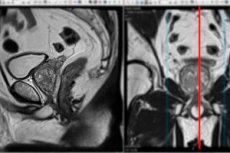
人工智能 (AI) 比放射科医生更能准确诊断前列腺癌。此外,AI 的误报率仅为放射科医生的一半。这项由拉德堡德大学医学中心协调、发表于《柳叶刀肿瘤学》杂志的国际研究表明了这一点。这是首个由国际团队透明地评估 AI 并与放射科医生的评估和临床结果进行比较的大规模研究。
由于前列腺癌高风险男性现在常规接受前列腺 MRI 扫描,放射科医生的工作量日益增加。使用 MRI 诊断前列腺癌需要丰富的专业知识,而经验丰富的放射科医生却十分短缺。人工智能可以帮助解决这些问题。
PI-CAI 项目负责人、人工智能专家 Henkjan Hausman 和放射科医生 Maarten de Rooy 组织了一场大型竞赛,参赛队伍来自全球各地,参赛队伍来自人工智能团队和放射科医生。他们与荷兰和挪威的其他医疗中心合作,提供了超过 10,000 份 MRI 扫描结果,透明地识别出每位患者是否患有前列腺癌。世界各地的不同团队被允许开发 AI 来分析这些图像。
排名前五的提交结果被整合成一个超级算法,用于分析前列腺癌的MRI扫描结果。最终,AI评分与一组放射科医生对400份前列腺MRI扫描结果的评分进行了比较。
精准诊断 PI-CAI 社区汇聚了来自 20 个国家的 200 多个 AI 团队和 62 位放射科医生。他们不仅将 AI 和放射科医生的结果相互比较,还将结果与金标准进行比较,追踪接受扫描的男性的结果。平均而言,这些男性的随访期为五年。
这项关于人工智能在前列腺癌诊断中的应用的国际首项研究表明,人工智能比放射科医生多发现近7%的前列腺癌病例。此外,人工智能识别出的可疑区域,在之后被确诊为非癌性的病例中,减少了50%。这意味着使用人工智能可以将活检数量减少一半。
如果这些结果在后续研究中得到证实,未来将极大地造福放射科医生和患者。它可以减轻放射科医生的工作量,提供更准确的诊断,并最大限度地减少不必要的前列腺活检。该人工智能仍需验证,目前尚未在临床环境中提供给患者。
质量体系 Hausman 指出,公众对人工智能缺乏信任。“这是因为制造商有时会创造出不够好的人工智能,”他解释道。他正在致力于两件事。第一,建立一个公开透明的测试,以公平地评估人工智能。第二,建立一个类似于航空业现有的质量管理体系。
如果飞机险些相撞,安全委员会将研究如何改进系统,避免将来再次发生类似事件。我希望人工智能也能如此。我希望研究和开发一个能够从每一次错误中学习的系统,让人工智能受到监督并不断改进。这样,我们就能在医疗保健领域建立对人工智能的信任。最佳的、受监督的人工智能可以帮助医疗保健变得更好、更高效。

